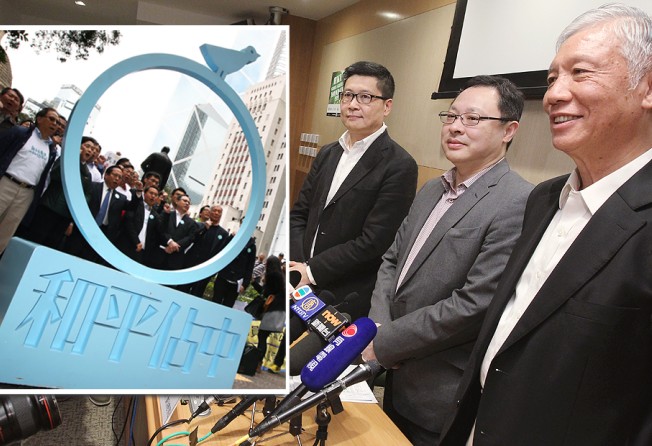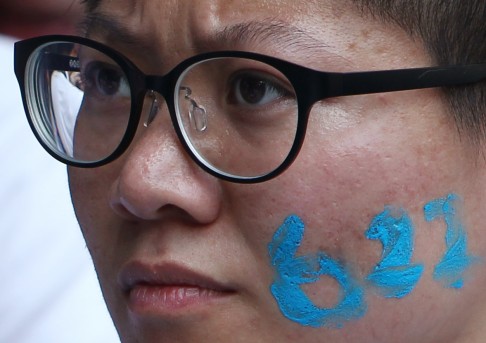
Occupy could abandon disobedience plan if less than 100,000 vote in ‘referendum’
Leaders will apologise as it would mean ‘campaign has failed’, says organiser

A leader of the Occupy Central movement has hinted it will scrap its planned civil disobedience protest if fewer than 100,000 people vote in a "referendum" next month.

The "referendum" was set up to decide which of three models for the 2017 chief executive election Occupy would endorse. But activists who took part in a series of meetings to shortlist the options chose only models that allowed the public to nominate candidates - which Beijing says is unconstitutional. The decision has been criticised by moderate pan-democrats for "disenfranchising" voters who do not want "confrontation".
Chan told Commercial Radio that the extra question could encourage Hongkongers to vote.
He said he hoped the turnout could match the 230,000 people who joined in a mock election organised by the University of Hong Kong in 2012, which offered all voters a chance to have their say on who the chief executive should be, while the actual election was decided by a 1,193-strong committee.
A much lower turnout, however, could mean curtains for Occupy, which has sparked alarm from the local and central governments over its plan to block streets in the financial district if the administration fails to come up with democratic reforms.

Speaking on the same programme, Democratic Party lawmaker Sin Chung-kai said reaching 230,000 would be "challenging" but said 100,000 votes in three days would not be hard.
Chinese University political scientist Dr Ma Ngok agreed, citing Occupy's first "referendum" on New Year's Day, which drew 62,000 voters online and at a polling station near the starting point of a pro-democracy march in Victoria Park. Next month's vote will see online voting available for three days and 15 polling stations open on June 22. All registered voters will be allowed to take part.
Lawmaker Ip Kin-yuen of the Professional Teachers' Union had his long-awaited meeting with the central government's liaison office director Zhang Xiaoming yesterday.
Ip said he had expressed views of Hongkongers on the future of the local political system and would give more details of the meeting today.
Several of his pan-democrat associates said they were unaware the meeting had taken place.